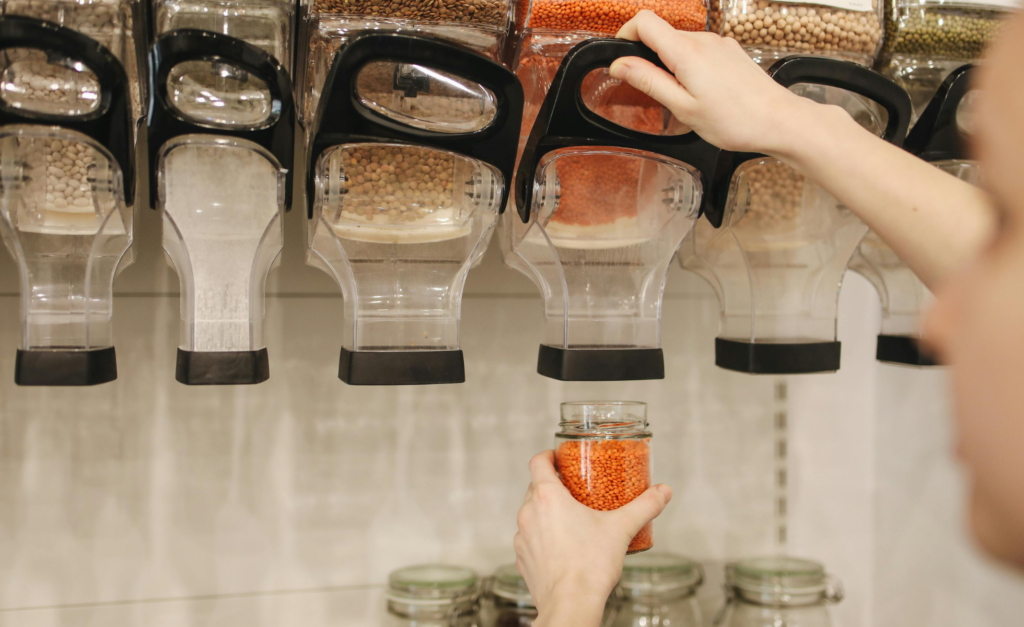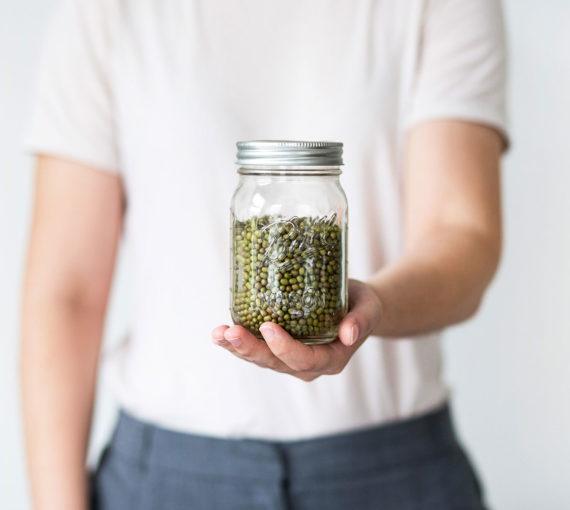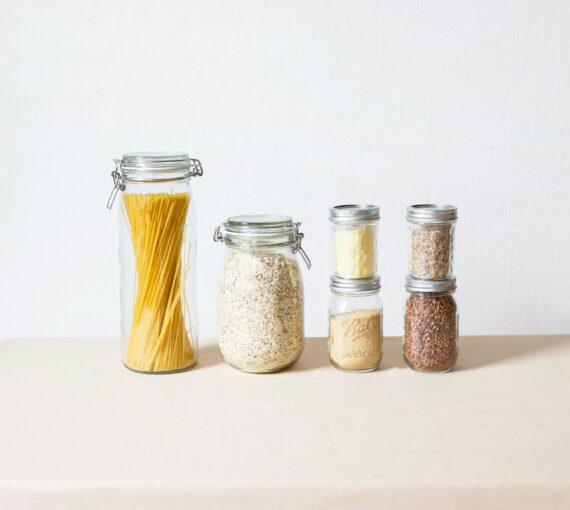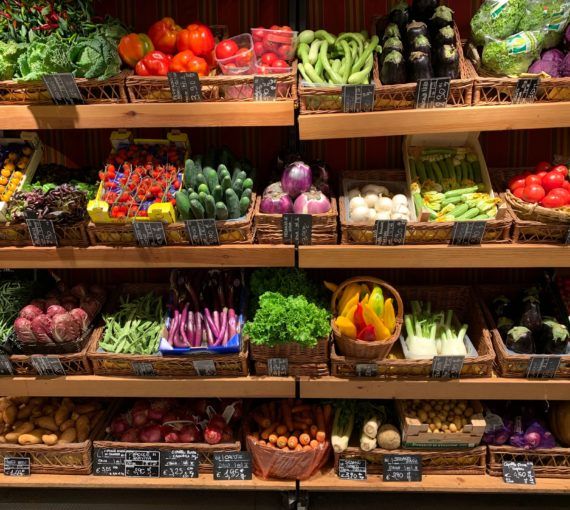
Bulk foods come in large quantities and eliminate single-use packaging. (Photo: Polina Tankilevitch via Pexels)
To get the most out of zero waste shopping, reduce waste, live sustainably and save money, switch from pre-packaged food and goods to buying in bulk and using refillable containers. The bulk store or aisle can be daunting if you don’t know what to expect, bring or do. Here’s help.
Finding balance in the meaning of “bulk”
The COVID-19 pandemic brought about profound shifts in consumer behaviour. This included creating a stark contrast between sustainable and “panic” bulk buying. Early in the pandemic, a sense of urgency and scarcity drove people to buy large quantities of essential goods under the guise of “bulk shopping.” This stockpiling triggered changes that paradoxically led to challenges for bulk bins and bulk-only and refill stores.
Before the pandemic, bulk shopping was growing e.g., in 2019, the bulk market reached a record value of 1.2 billion euros in Europe. Mandatory lockdowns and shifts in consumer habits disrupted this momentum. Concerns over health and safety led many consumers to avoid unpackaged goods, leaving the bulk market struggling.
Now we must redefine “bulk” to align with evolving consumer priorities — balancing safety, accessibility and sustainability.
Five benefits of buying bulk
- Cost savings. Bulk items are often cheaper per unit because you’re not paying markups for branding, packaging, shipping, etc.
- Reduced packaging waste. Bulk products eliminate the need for single-use packaging, especially plastic.
- Reduced product waste. Buy only what you need and reduce potential spoilage from excess food, cleaners, body care products, vitamins and supplements, etc.
- Less commitment and clutter. Flexibility in quantity allows you to experiment with new products without committing to a large purchase. And bringing home only what you need helps maintain a more organized space.
- Fewer trips to the store. Reduce transportation emissions by shopping less often.

Curious about a zero waste lifestyle?
A zero waste lifestyle aims to reduce waste generated by individuals, households, businesses and communities. Want to incorporate this into your daily routine, but don’t know where to begin?
What to expect at a bulk and/or refill store
What’s the difference between a bulk and a refill store? You may find some of the same goods in both. Bulk stores focus on dry goods and general food staples. Refill stores typically carry more liquid products and ingredients (great for making DIY products).
Many rural folks can’t access specialized bulk-only and/or refill stores. Make sure you haven’t missed a bulk food section at your local grocer!
Common places that sell bulk:
- Health food stores
- Organic food stores
- Local grocers
- Supermarkets
- Zero waste shops
Tip! If you don’t live near a bulk shopping place, look online. Some deliver. Always check where a product comes from. Opt for local and organic.
Common products found at bulk and/or refill stores and/or in aisles:
- Beans and legumes
- Body care ingredients (e.g., witch hazel, jojoba oil, etc.)
- Candy, chocolate and assorted sweets
- Coffee, beans and ground
- Dehydrated fruits and vegetables
- Detergents
- Dried tea leaves
- Essential oils
- Flours
- Grains
- Household cleaners, disinfectants and solutions
- Lotions
- Make-up products
- Nuts
- Oils
- Rice
- Seeds
- Shampoo and conditioner
- Soaps
- Spices and seasonings
- Sugars
- Sunscreen
- Oral care (e.g., mouthwash, toothpaste, etc.)
- Vitamins and supplements
… and more!
What to bring when bulk buying
One of the benefits of shopping at bulk and refill shops is that you bring your own reusable containers.
Containers to bring:
Each bulk and refill store has different recommendations and allowances for containers. (Call before you go if you’re unsure.) If your container is clean, dry and can be easily weighed, it’ll work. If you have a food scale at home, weigh your empty containers. Write the weight on your container with a permanent marker. If you don’t have a scale, do this at the store register before shopping.
Some stores have returnable jars you can get with a small deposit.
Best part? You can find most of these containers in your recycling bin or at a local thrift shop!
- Cloth or mesh bags. Great for grains, nuts and other dry goods. A lightweight option (especially if you’re using active transportation) for taking dry goods home before transferring them into long-term storage.
- Glass jars and lids (e.g., pasta sauce and jam jars, etc.). Ideal for bulk grains, nuts, dried fruits and other dry goods.
- Glass bottles (e.g., liquor bottles with screw lids). Great for liquids.
- Mason jars. Good for dry goods and viscous products like liquid detergents or lotions.
- Paper bags. Useful for lightweight, dry items like ground coffee, spices and flour.
- Plastic containers and lids (e.g., yogurt containers). Ideal for lightweight goods. Use only plastics you can safely wash and reuse.
- Pump bottles (e.g., shampoo bottles, hand soap dispensers, etc.). Useful for products you use often, such as lotions or liquid castile soap.
- Stainless steel containers. Great for heavier items and/or those that should be kept airtight.
Tip! Many bulk aisles in commercial grocers provide plastic bags. Avoid plastic waste! Bring your own see-through lightweight reusable mesh bags.

Plan ahead
Avoid buying too much! Inventory your current supply of dry goods, ingredients and body care products before you head to the store.
How much to expect to spend getting started
Bulk buying is often celebrated as cost-effective. But the upfront costs can be financially daunting for some.
Upfront costs of bulk buying include minimum weight requirements and purchasing storage containers. These can deter people from reaping the long-term savings and environmental benefits.
Three ways to reduce upfront costs of bulk shopping:
- Start with the basics. Instead of buying large quantities of many items at once, begin with a few staples you use often, like rice, beans, nuts or flour. Incorporate more items over time. This allows you to spread out the cost and invest in storage containers as needed.
- Try food sharing. Shop or share with a group of friends, family or neighbours. Splitting larger purchases into smaller portions means enjoying cost savings without the high initial expense.
- Take advantage of coupons and membership benefits. Many stores offer membership programs, loyalty points and coupons that provide savings and exclusive deals.


